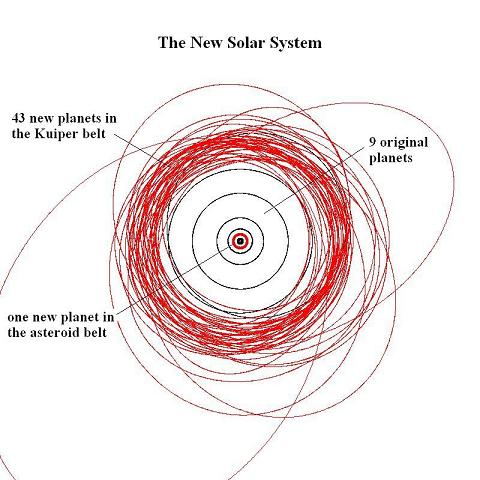Over in the comments thread to the Adam Roberts’ post that kicked off the whole Hugos kerfluffle last week, Rich Puchalsky asked:
Has there ever been a good year for Hugos? Has there ever been a good year for fandom as such, in which SF fans recognized actually good writing? I’d say no. Go ahead and look back at the lists of Hugo winners for just about any year, and think “are those really the great works of SF from that period?” And really, no.
A few comments later, he clarified his position:
SF has the self-image that it is “the literature of ideas” — that what is primarily important for an SF book is the idea, not the writing quality. I think that’s a mistake, or at least incomplete. Every subgenre of writing has its particular focus, *plus* — if the work is to last — the necessity that the writing be of literary quality. A psychological novel must show psychological insight, *and* it must be well written. A political novel must have something to say about an important political issue, *and* it must strive for literary expression. And so on.
The problem with works like (to choose two of your examples) Dune, or Stand On Zanzibar, is that while their SF ideas may be well enough — especially before they were imitated — their writing is, really, pedestrian. I don’t really have space here to discuss why I think this is so, but I think it’s so.
Dune was published in 1965, which, wiki tells me (and wiki is amusingly over-developed on SF) was also the year that PKD’s The Three Stigmata of Palmer Eldritch came out. Which, in literary terms, is a much better book. The disjointedness of the prose and plot reinforces the disjointedness of the world that PKD is depicting. Of course, not everyone agrees about PKD — there are arguments between critics about whether his sentences are an inspired fitting of form to theme, or just clumsy and hasty — but there are always arguments about literary works, and PKD’s works are agreed to be literary.
Stand On Zanzibar has what might qualify as a more experimental form, for SF, but Brunner took it from Dos Passos works published in the 1930s. It was really no longer new, in the wider community. 1968 was also the year that Aldiss’ Report on Probability A came out. Now, if you’re talking about experimental fiction, about the new — that book is amazing. Is it anywhere near as amusing as Brunner’s? No, nor does it take on current political issues as he did. But in terms of what it does, it’s amazing; it’s an “anti-novel”. I really don’t have time to describe it here, though I’ve written about it on my blog. It may or may not be a successful experiment, but I think that it retains more interest now, for a literary reader, than Brunner’s work does.
Now I can see where Rich is coming from, as his preferences lie with a tradition of science fiction that hasn’t been honoured much by the Hugos. He’s also right in recognising that “literary quality” hasn’t been much of a consideration in Hugo voting either, that a lot of the classic science fiction novels aren’t the first books you think of when considering “literary expression”. Genre science fiction has a long tradition of valuing content over presentation, a cultural cringe against fancy writing. Part of that comes from the genre’s pulp origins, part from the long cultural isolation of science fiction, exiled from the realms of Literature as it was (or assumed itself to be) from the twenties to the seventies. It’s partially also because the kind of people who traditionally read and write science fiction are the science and engineering geeks, prefering clarity of expression even if that means pedestrian writing. Not all science fiction readers and writers are like that of course, there always have been people as concerned with their writing as what they were writing about (Cordwainer Smith comes to mind), but in some times and places, the Hugos being one of them, it can be a dominant strain.
And yet Rich is wrong to reject the Hugos as he does. Leaving out the old copout of personal preferences and the difficulties of determining “good writing”, I think that the Hugo Awards did consistently reward works with both sfnal and literary qualities, from their inception in 1953 up to at least the late seventies. As I’ve argued earlier, this was a time when science fiction was small enough for the average Hugo voter to be knowledgable enough about the whole field to make informed choices; the rot only set in with the science fiction explosion of the eighties and beyond. And even then there have been years like 2005, when there was a novel short list of five excellent books. If you look at the four fiction categories together, (short story, novelette, novella and novel), both the winners and nominees in each category, I think it is clear that literary quality has been a factor in determining the awards over the years.
The main thing to remember about the Hugos is that they’ve always been consensus awards, that the Hugo voters have never been a solid block with everybody having the same taste, but that there have always been various currents and grouplets “fighting” for dominance in the awards. Sometimes the literary avant-garde won, sometimes the no-nonsense sensuwunda crowd ( and sometimes they were all out of their heads and we get They’d Rather Be Right or Hominids as winners…
